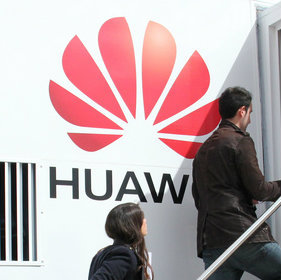
US authorities may provide funding to Ericsson and Nokia to fortify them against an increasingly powerful Huawei, according to a report from the UK's Financial Times newspaper (subscription required) that cites two people with knowledge of the matter.
Under the proposals, the US government would reportedly issue credit to the Nordic companies, whose network equipment is used widely in the US market. The scheme has been conceived as a response to Huawei's practise of extending generous financing terms to customers to secure deals, said the FT's sources.
The Trump administration is also said to be taking a closer interest in open radio access networks as it continues to battle Huawei. In these networks, software developed by US companies such as Altiostar would run on common, off-the-shelf servers, giving operators an alternative to the dedicated kit they buy from traditional vendors.
Officials have reportedly been in discussions with Altiostar, which could benefit from government plans to provide hundreds of millions of dollars in funding to rural service providers that have been urged to replace Huawei with other suppliers.
The news is a further sign of the upheaval taking place across the telecom equipment sector as telcos start to invest in the new-generation 5G technology, which is attracting attention from governments worldwide.
Anti-China hawks in the US say Huawei's 5G products may include "backdoors" allowing China's military to spy on other countries or even bring down critical infrastructure.
However, there is also US anxiety about Huawei's 5G ascendancy when there are so few large Western alternatives. After years of consolidation, Ericsson, Huawei and Nokia control nearly 80% of the mobile infrastructure market, said Nick Read, the CEO of UK-based Vodafone, during a press conference earlier this year.
Huawei's opponents, including some Western analysts, say it has competed unfairly for years. One source in the equipment market accuses it of dumping -- or exporting products at a huge discount to secure market share in violation of World Trade Organization rules. The same source, who does not work for Ericsson or Nokia, blames the difficulties those vendors have experienced on Huawei's anticompetitive behavior.
In the past three years, Ericsson has sold media assets and cut about 17,000 jobs as it tries to restore profitability, while Nokia still reports losses according to International Financial Reporting Standards.
Want to know more about 5G? Check out our dedicated 5G content channel here on
Light Reading.
John Strand, an outspoken Danish telecom consultant, was fiercely critical of the Chinese vendors and their tactics in a recent report about the costs of replacing Huawei in European telecom networks, a copy of which was sent to Light Reading.
"They have the backing of the Chinese government whose industrial policy favors them," he said. "Huawei's competitors do not enjoy the same advantages. Indeed, such European state support for European firms is illegal."
"Huawei and ZTE [a smaller Chinese vendor] have relied heavily on state support and promotion," argued Strand. "The modern antitrust analysis would likely find the price erosion brought by the Chinese players as a method of unfair and discriminatory competition."
Besides building so much of the US telecom infrastructure, both Ericsson and Nokia are major employers in the US market. Ericsson had 9,342 employees in the whole of North America at the end of June, while Nokia had 14,200 in the region at the end of 2018.
Outside the US, service providers in Western markets have resisted pressure to exclude Huawei, arguing it would drive up costs in the short term and make them even more dependent on Nordic players in the long run.
Hoping to bring new suppliers into the market, Vodafone, one of Huawei's biggest European customers, yesterday announced plans to "fast track" investment in open RAN technologies in Europe and Africa. It has kicked off field trials in several countries, including the UK, and is working with US suppliers including Mavenir and Parallel Wireless, software rivals to Altiostar.
Some government figures have also voiced concern about over-reliance on a few big suppliers in the 5G infrastructure market. Jeremy Wright, the UK's former digital secretary, previously argued that banning Huawei could make telecom networks even less secure by forcing operators to choose between Ericsson and Nokia, the only major alternatives today.
Related posts:
— Iain Morris, International Editor, Light Reading
About the Author(s)
You May Also Like




_International_Software_Products.jpeg?width=300&auto=webp&quality=80&disable=upscale)







